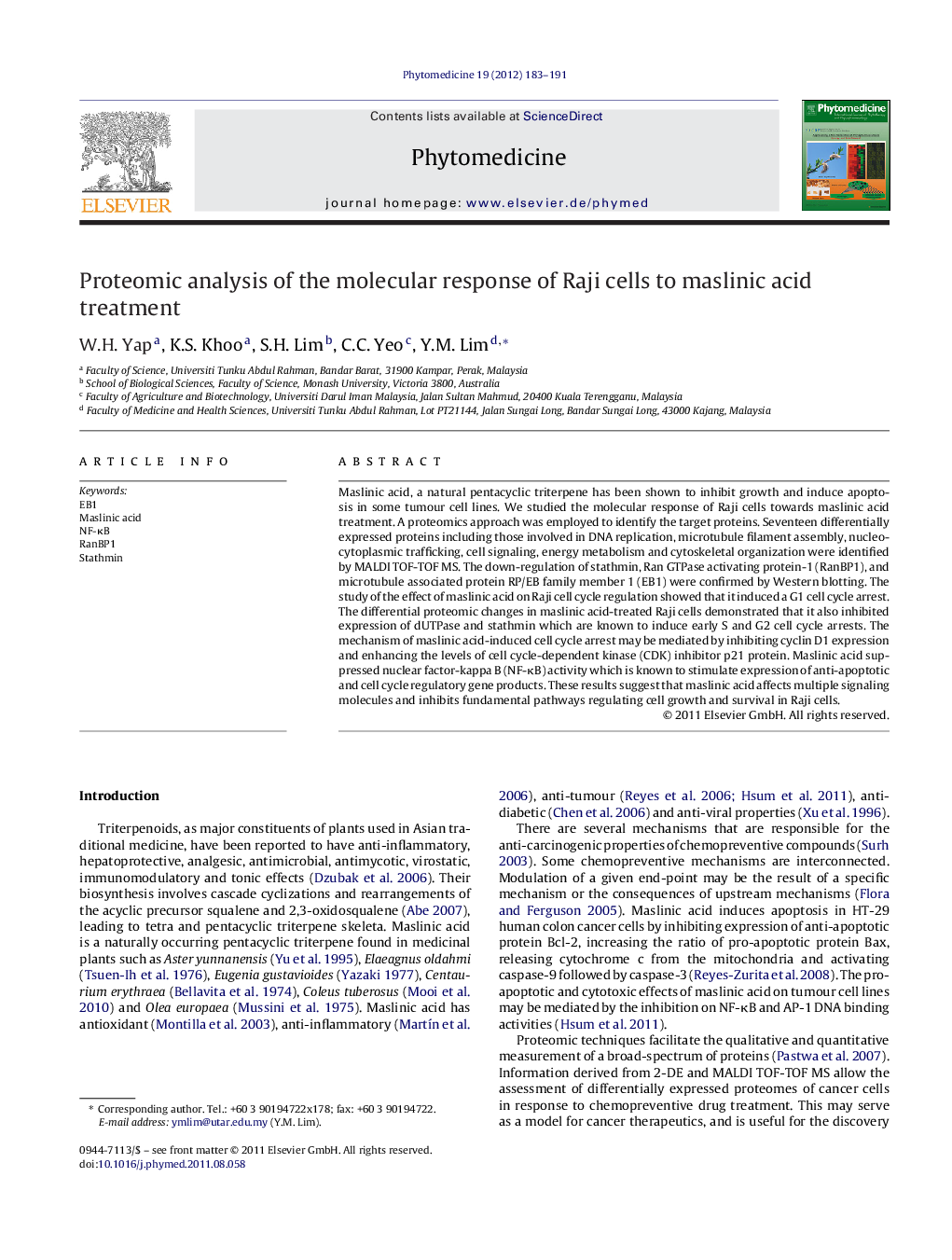| Article ID | Journal | Published Year | Pages | File Type |
|---|---|---|---|---|
| 2496868 | Phytomedicine | 2012 | 9 Pages |
Maslinic acid, a natural pentacyclic triterpene has been shown to inhibit growth and induce apoptosis in some tumour cell lines. We studied the molecular response of Raji cells towards maslinic acid treatment. A proteomics approach was employed to identify the target proteins. Seventeen differentially expressed proteins including those involved in DNA replication, microtubule filament assembly, nucleo-cytoplasmic trafficking, cell signaling, energy metabolism and cytoskeletal organization were identified by MALDI TOF-TOF MS. The down-regulation of stathmin, Ran GTPase activating protein-1 (RanBP1), and microtubule associated protein RP/EB family member 1 (EB1) were confirmed by Western blotting. The study of the effect of maslinic acid on Raji cell cycle regulation showed that it induced a G1 cell cycle arrest. The differential proteomic changes in maslinic acid-treated Raji cells demonstrated that it also inhibited expression of dUTPase and stathmin which are known to induce early S and G2 cell cycle arrests. The mechanism of maslinic acid-induced cell cycle arrest may be mediated by inhibiting cyclin D1 expression and enhancing the levels of cell cycle-dependent kinase (CDK) inhibitor p21 protein. Maslinic acid suppressed nuclear factor-kappa B (NF-κB) activity which is known to stimulate expression of anti-apoptotic and cell cycle regulatory gene products. These results suggest that maslinic acid affects multiple signaling molecules and inhibits fundamental pathways regulating cell growth and survival in Raji cells.
